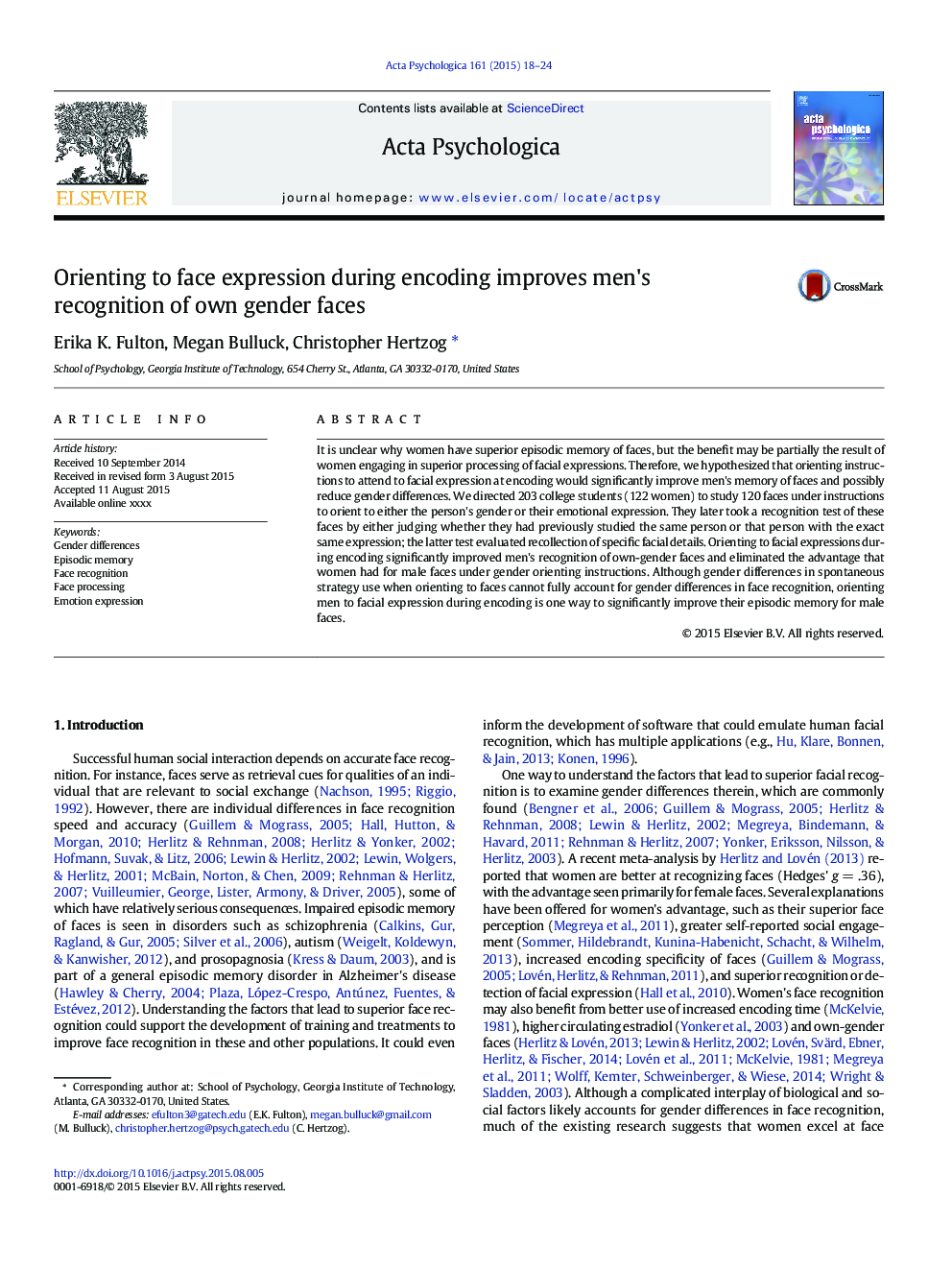| Article ID | Journal | Published Year | Pages | File Type |
|---|---|---|---|---|
| 7277202 | Acta Psychologica | 2015 | 7 Pages |
Abstract
It is unclear why women have superior episodic memory of faces, but the benefit may be partially the result of women engaging in superior processing of facial expressions. Therefore, we hypothesized that orienting instructions to attend to facial expression at encoding would significantly improve men's memory of faces and possibly reduce gender differences. We directed 203 college students (122 women) to study 120 faces under instructions to orient to either the person's gender or their emotional expression. They later took a recognition test of these faces by either judging whether they had previously studied the same person or that person with the exact same expression; the latter test evaluated recollection of specific facial details. Orienting to facial expressions during encoding significantly improved men's recognition of own-gender faces and eliminated the advantage that women had for male faces under gender orienting instructions. Although gender differences in spontaneous strategy use when orienting to faces cannot fully account for gender differences in face recognition, orienting men to facial expression during encoding is one way to significantly improve their episodic memory for male faces.
Related Topics
Life Sciences
Neuroscience
Cognitive Neuroscience
Authors
Erika K. Fulton, Megan Bulluck, Christopher Hertzog,
